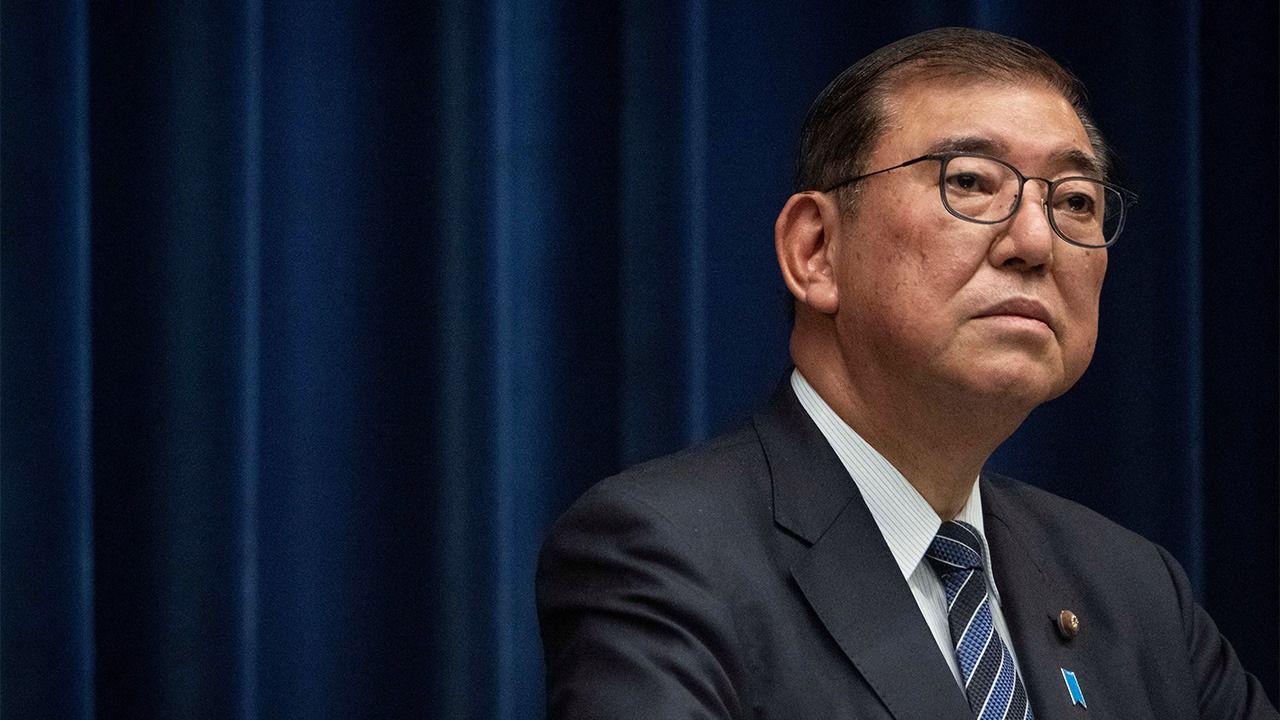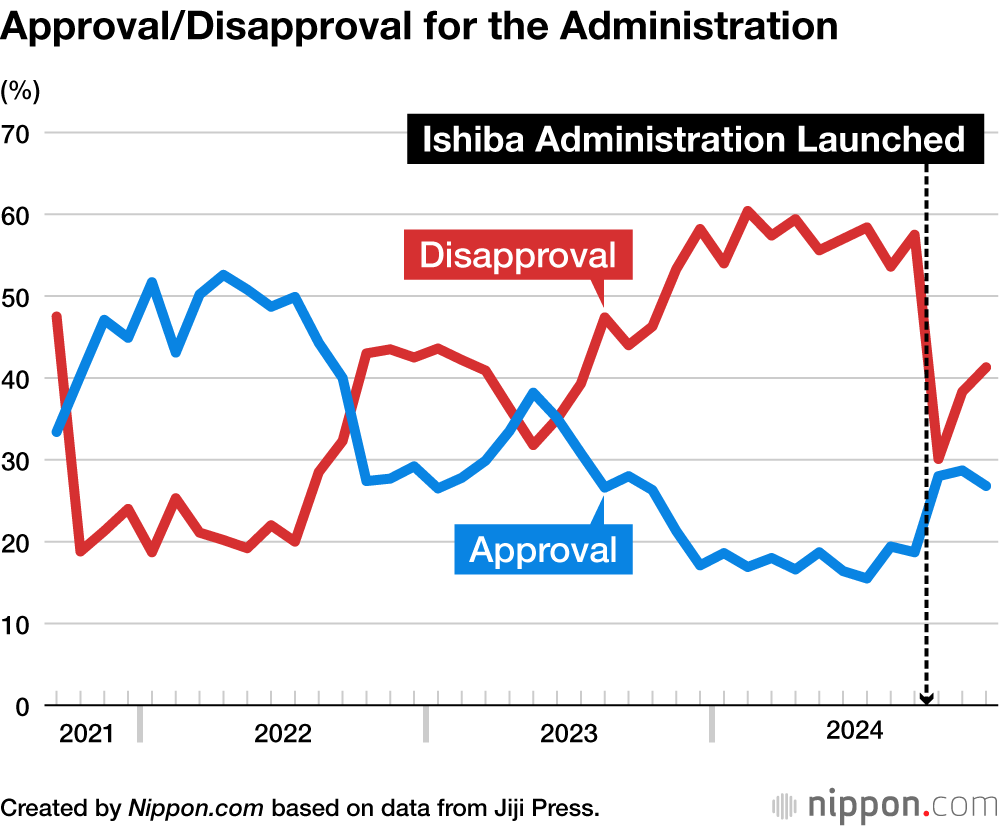
Tough Times at Year’s End: Public Support Falls for Ishiba
Politics- English
- 日本語
- 简体字
- 繁體字
- Français
- Español
- العربية
- Русский
Japan’s major media organizations published the results of their public opinion polls for December 2024, showing that views of Prime Minister Ishiba Shigeru and his administration continue to sour. In November the results obtained by five firms had positive views of the Ishiba government in the 40%–50% range, but a month later three of these polls had sunk into the 30%–40% range.
The Sankei Shimbun reported a high of 45.9% support for the administration, while the Jiji Press poll was the lowest, at just 26.8%. The most marked drop from November to December came in the Nikkei poll, where those supporting Ishiba fell by 5 percentage points. The Sankei poll marked a modest 2.1 point climb in support; the Asahi Shimbun also saw a slight climb of 2 points, which it reported as “largely unchanged” from November.
Public Support for the Administration (December 2024)
| NHK | 38% (–3) |
| Jiji Press | 26.8% (–1.9) |
| Yomiuri Shimbun | 39% (–4) |
| Mainichi Shimbun | 30% (–1) |
| Kyōdō News | 36.5% (–3.5) |
| Asahi Shimbun | 36% (+2) |
| Sankei Shimbun | 45.9% (+2.1) |
| Nikkei | 41% (–5) |
Disapproval
| NHK | 38% (+1) |
| Jiji Press | 41.3% (+3) |
| Yomiuri Shimbun | 48% (+6) |
| Mainichi Shimbun | 53% (+3) |
| Kyōdō News | 43.1% (+4.3) |
| Asahi Shimbun | 43% (–4) |
| Sankei Shimbun | 47.7% (–2.1) |
| Nikkei | 51% (+5) |
Notes: Numbers in parentheses indicate point changes from the previous month’s results; bolded figures are rises from the previous month. Questions asked to respondents and methodologies differ for each organization; Jiji uses individual interviews, Mainichi uses an online format for smartphone users, and the other companies use randomized calls to mobile and fixed phone numbers. NHK and Jiji carried out their surveys around December 6–9, Yomiuri, Mainichi, Kyōdō, Asahi, and Sankei around December 13–15, and Nikkei on December 20–22.
In the disapproval side of the column, the Mainichi Shimbun poll turned out the highest negative rating, at 53%. Disapproval numbers rose in six of the eight polls, with the Yomiuri Shimbun recording the greatest leap in this number, at 6 points higher than in November.
The Jiji Press polls have consistently shown disapproval ratings outpacing approvals ever since Ishiba took office at the beginning of October 2024. The gap between the two numbers widened to 14.5 percentage points in December, prompting Jiji to describe his support level as emblematic of an administration on the way out.
The media firms’ polls also gauge support for political parties. Here the Democratic Party for the People showed marked growth in its positive numbers for December, perhaps thanks to its backing of the Liberal Democratic Party and Kōmeitō coalition’s move to raise the income tax exemption threshold from ¥1.03 million to ¥1.23 million in its latest proposal on tax reform.
During the extraordinary session of the National Diet that ended on December 24, three political reform bills were passed into law in response to the slush-fund scandal that engulfed the LDP and its factions over the previous year. The majority of ruling and opposition party members voted to do away with the practice of “political activities funds” distributed by parties to individual politicians, whose use had long been murky. The LDP/Kōmeitō coalition, now functioning as a minority government, has been pressed to accept a range of opposition demands.
In the near-term future, Prime Minister Ishiba’s calendar includes a potential visit to meet with US President-elect Donald Trump ahead of his inauguration on January 21.
(Originally published in Japanese on December 28, 2024. Banner photo: Prime Minister Ishiba Shigeru speaks to the press at the end of the extraordinary session of the Diet on December 24, 2024. © Reuters.)

